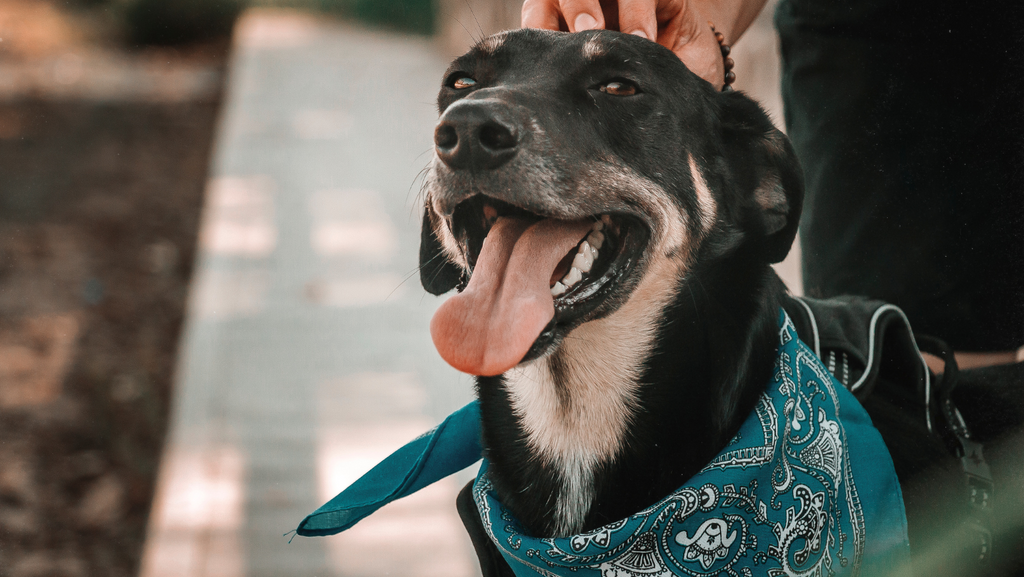What is a specialist veterinarian?

Ever wondered who your vet calls when things get complicated? Enter the veterinary specialist!
Armed with extra letters after their name, a veterinary specialist is a veterinarian who has undergone years of additional advanced supervised training to develop expertise in a specific field. To become a specialist, vets must culminate their training by passing a rigorous set of board examinations to demonstrate they meet the stringent requirements relating to their area (i.e., become ‘board certified’). Under Australian and New Zealand legislation, only vets registered with the Australasian Veterinary Boards Council (AVBC) may claim and use the term ‘specialist’.
Specialist veterinarians not only treat animals in clinics, but also contribute to the veterinary profession by publishing scientific information in journal articles, books, theses, reports, and teaching or presenting at conferences.
Did you know? Each Petzyo’s recipe has been formulated and approved by Board Certified Veterinary Nutritionists to be suitable to feed puppies and all life stages!
How is a specialist vet different from a normal vet?
A board certified vet focuses on one specific field of veterinary medicine, like nutrition, dermatology, cardiology, small animal surgery, emergency and critical care, or anaesthesia. Specialist vets typically only see complex cases.
In contrast, a general practice vet, or regular vet, works across all areas of everyday animal health, from vaccinations and desexing to diagnosing illnesses, performing routine surgeries, and managing chronic conditions. Most vets treat multiple species, like cats, dogs, birds, and livestock.
Why might your dog need to be referred to a specialist vet?
Some specialist vets are involved in your pet’s care for just a single episode or procedure, for example, surgical repair of a broken leg, but are able to return to your regular vet for recovery. In contrast, internal medicine vets may offer ongoing expertise throughout your dog’s life, for example, stabilising and managing a dog with complicated diabetes to develop a detailed treatment plan and adjusting medications over time alongside your GP vet.
Board certified veterinary nutritionists

Board certified veterinary nutritionists are the highest level of experts in animal nutrition. They may focus on either companion animals (dogs, cats, mice, etc.) or production and performance animals (cows, sheep, pigs, poultry, and horses).
Specialist veterinary nutritionists are involved in several different aspects of small animal (dog and cat) veterinary nutrition, including:
-
Investigating diet-related illnesses such as deficiencies, allergies, or intolerances
-
Designing clinical nutritional plans for dogs with diseases (e.g., diabetes, kidney failure, liver disease, or unusual intolerances)
-
Formulate recipes that can be homemade with bespoke ingredients to ensure the diet is complete and balanced
-
Consult with pet food companies to formulate and improve recipes for commercial diets to optimise and balance superfood ingredients
Did you know? Every Petzyo recipe undergoes regular rigorous quality assurance testing, with results published right on our ingredients page, so you know exactly what’s in your dog’s bowl!
Veterinary nutritionists don’t just work with pets. In production animal industries, they are consulted to help:
-
Dairy cattle: analysing pastures and rations to support high milk yields and high fertility
-
Beef cattle: optimising weight gain and feed efficiency in times of drought or variable pasture rotation
-
Racehorses: fine-tuning nutrition to support athletic performance, recovery from injuries, or managing conditions like laminitis and Cushing’s disease
Common veterinary specialties

There are many different kinds of specialist veterinarians! Listed below are some examples of why a dog might need to visit one:
-
Nutrition - designing specific diets for kidney or liver disease
-
Small animal surgery - surgery to treat cruciate ligament rupture
-
Anaesthesia - individualised anaesthesia for high-risk, geriatric, or complex patients (e.g., with cardiac disease) to facilitate procedures and manage pain
-
Internal medicine - complicated diabetes mellitus or Addison’s disease
-
Cardiology - further investigating a heart murmur and managing heart disease
-
Oncology - diagnosing cancer and prescribing chemotherapy treatment protocols
-
Diagnostic imaging - MRI or CT scan to diagnose a slipped disc (intervertebral disc disease)
-
Pathology - diagnosing the cause of illness from biopsies or laboratory samples
-
Ophthalmology - surgical treatment of cataracts, or management of glaucoma with intraocular pressure management
-
Dentist - treat fractured teeth, malocclusions (misaligned teeth), and tooth resorption
Pathway to becoming a specialist vet

If you consult with a veterinary specialist, you’re speaking with someone who has completed almost a decade of formal veterinary education:
-
Meet the entry level requirements for vet school. A minimum ATAR of around 98.50 is needed for most vet schools in Australia
-
5 years of undergraduate bachelor’s degree. Some veterinary schools in Australia require students to complete 2 years of a Bachelor of Science before progressing to a postgraduate Doctorate of Veterinary Medicine.
-
1 year of general or special internship.
-
3 to 4 years (minimum) formal residency training under supervision by already qualified specialists.
-
Conduct clinical research, published in peer-reviewed journals.
-
Vets training in the Australian system undertake ‘membership’ examinations with the Australian and New Zealand College of Veterinary Scientists (ANZCVS)
-
-
+/- 1 year practising as a veterinary registrar.
-
Pass board examinations, granting ‘specialist’ status.
Do I need a referral from my regular vet to see a specialist?
Generally, yes. You will need a referral from your primary care veterinarian to secure an appointment with a specialist vet. This written letter makes sure that the specialist has the necessary background information about your dog’s condition to provide the best ongoing care.
For simple matters, veterinary nutritionists and behaviourists may be willing to consult with you directly, without the need for a referral first. This is usually because veterinarians in these fields take on a collaborative role. These vets may still contact your regular vet to check your dog’s medical records. Even if a referral isn’t required, it’s usually a good idea to let your regular vet know, as they’re all part of your dog’s healthcare team. Good communication between professionals leads to better outcomes.
Do specialist vets cost more money?
Yes, specialist veterinary care does typically cost more money, and for a good reason. A consultation with a specialist vet will cost you more than seeing a GP vet. The consultation fee covers the time taken to review your dog’s medical history, ongoing communication with your regular vet, interpretation of laboratory results, and development of a thorough plan for ongoing management of your dog’s medical or surgical condition. The fee also covers necessary staff working alongside them, such as veterinary technicians, nurses, and admin support.
When your dog visits a referral clinic, you’re accessing expensive specialised equipment and diagnostics, like MRI, endoscopy, advanced surgical instruments, and anaesthetic monitoring devices. Specialist veterinary hospitals are also costly to build and maintain. There are strict standards that must be met for MRI rooms and surgical operating theatres, and it is often necessary to staff them 24/7 to care for critically ill animals.
So, while your regular vet is the ultimate all-rounder, sometimes it takes a specialist to swoop in and save the day! Which is why all of Petzyo’s dry kibble and raw royalty recipes are formulated with board certified veterinary nutritionists to help your pup live their healthiest, happiest life.




